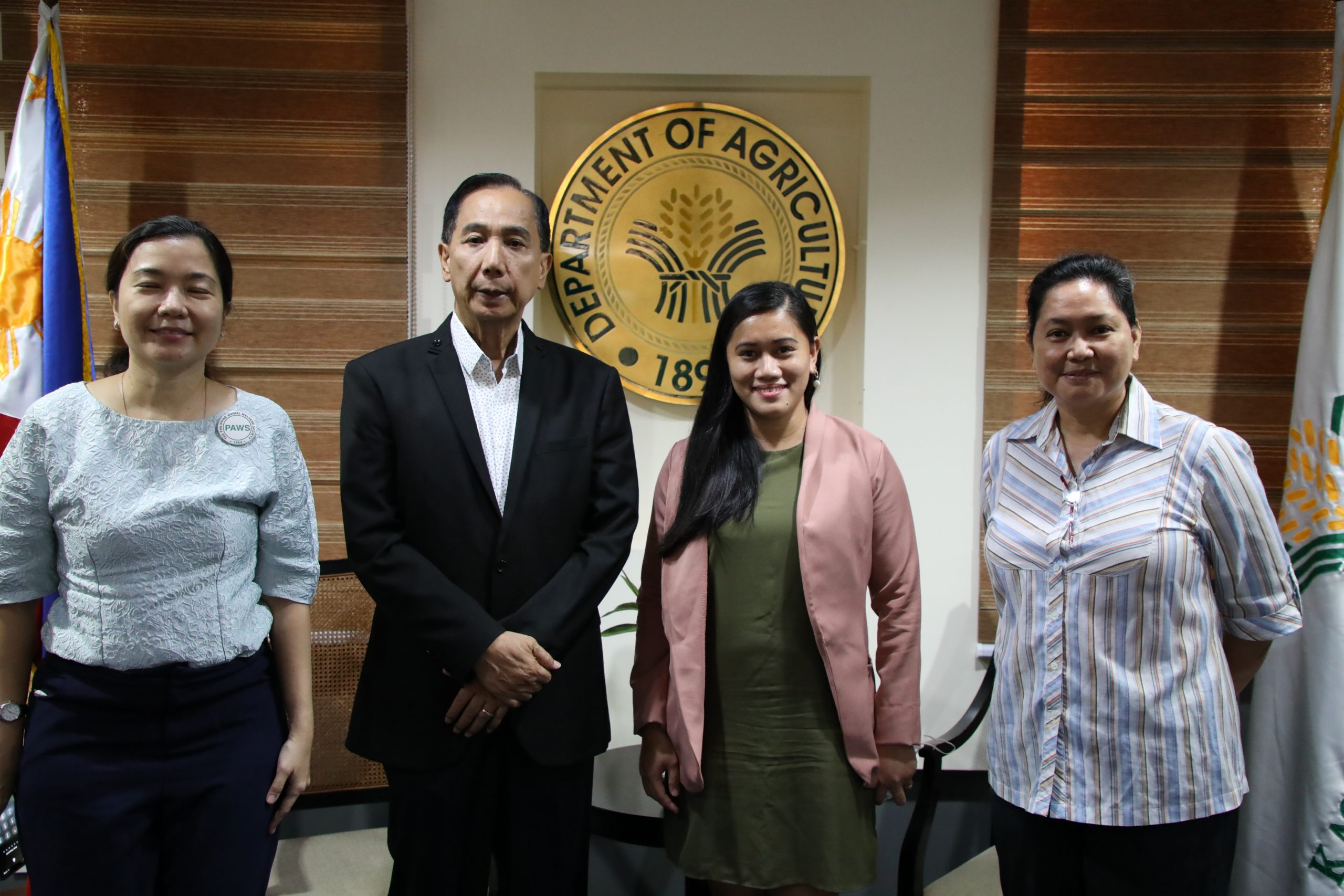
Two years after the signing of the National Sardine Management Plan (NSMP) 2020-2025, Department of Agriculture (DA) Secretary William Dar met with representatives from non-profit organizations Oceana, Earth Island Institute, and Philippine Animal Welfare Society (PAWS) last June 6 to strengthen their commitment towards sustainable and responsibly managed fisheries in the Philippines.
The NSMP reported that the production volume of fimbriated (tunsoy) and Indian oil sardines has averaged 333,743 metric tons (mt) or 15% of the total marine capture fisheries for the past 15 years, and that “there was an increasing production trend in 2002-2009, however a sharp decline can be observed in 2010-2011, and stabilized thereafter in the recent 5 years at 346,826 mt annually.”
The Philippine Statistics Authority (PSA)’s Fisheries Situation Report for Major Species also presented a declining trend for fimbriated sardines, noting 44.02 thousand metric tons (mt) in 2021 from its initial production volume of 77.72 thousand mt in 2019.
The same report showed more hope for the Indian oil sardines—now referred to as Bali sardinella (tamban) in recent PSA records—after its production volume went up from 247.50 thousand mt in 2019 to about 321.78 thousand mt in 2021.
Illegal fishing, climate change, low awareness of and compliance to fishery policies, the need for more scientific studies, conflicting policies, and weak institutional capacity and mechanisms to implement national fisheries management programs are a few of the challenges that need to be addressed, according to the NSMP.
Thus, the NSMP aims to attain its vision by improving science-based indicators for the sustainability of sardine stocks, improving the distribution of benefits among sardine fisherfolk communities, and strengthening science-based management for sustainable sardine fisheries through coordinated actions among the country’s 12 Fisheries Management Areas (FMAs).
“We can no longer ignore the critical need to manage our sardine fisheries. This means that all 12 Fisheries Management Areas must abide by the National Sardines Management Plan I signed in May last year,” Secretary Dar previously expressed during the 2021 FMA Summit.
However, Oceana’s Campaign and Research Director Rhea Yray-Frossard reported that only two FMAs have adopted the NSMP as of date—namely, the FMA 7 (Sorsogon Bay, Ragay Gulf, Ticao Burias Pass, Cariaga Bay, Magueda Bay, San Bernardino Strait, Irong-Irong Bay, and Samar Sea) and the FMA 12 (Balayan Bay, Calatagan Bay, Batangas Bay, Tayabas Bay, Tablas Strait, Mogpog Pass, and Sibuyan Sea).
“May mga National Stock Assessment Program (NSAP) study result na naka-red na talaga [ang sardines status], beyond the limit reference points. So we really tell them na it’s time to put in the complete measures na,” the Oceana representative explained.
In response, the Secretary said that he will direct the Bureau of Fisheries and Aquatic Resources (BFAR) to act fast and pass on NSMP’s implementing guidelines, in consultation with the stakeholders.
Meanwhile, Earth Island Institute, with support from PAWS through Executive Director Anna Cabrera, also petitioned for the protection of the Irrawaddy dolphins by declaring the species and their habitats as critically endangered.
Earth Island’s Asia-Pacific Regional Director Trixie Concepcion explained to the Secretary that there are only three remaining populations of the dolphin species in the Philippines, mainly located in Palawan and the Iloilo-Guimaras Straits. She mostly attributed the dwindling population to boat traffic, use of unsustainable fishing gears, and declining water quality.
Concepcion added that if Secretary Dar declares the Irrawaddy dolphin a critically endangered animal, the local government may convene and discuss its protection.
Section 4 of the Republic Act 9147 or the Wildlife Resources Conservation and Protection Act states that the DA “shall have jurisdiction over declared aquatic critical habitats, all aquatic resources, including but not limited to all fishes, aquatic plants, invertebrates, and all marine mammals except dugong.”
Prior to the COVID-19 pandemic, Earth Island already reached out to BFAR Director Eduardo Gongona for a potential joint administrative order with the Department of Environment and Natural Resources (DENR).The DA chief guaranteed that the petition will be studied accordingly by BFAR for immediate action. ### (Krystelle Ymari A. Vergara, DA-AFID)















